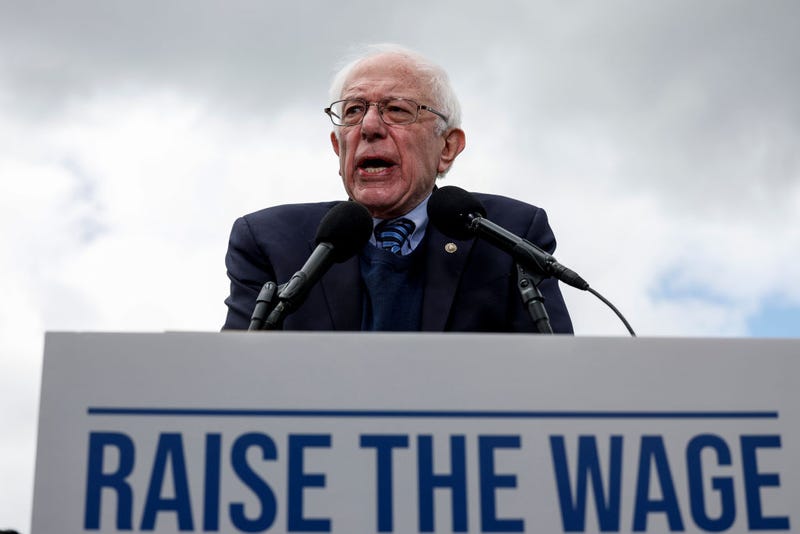
The United States federal minimum wage has not moved since 2009, when it was raised to $7.25 an hour. While states have passed their own legislation, Sen. Bernie Sanders (I-VT) is now looking to bump the federal number once again to $17 an hour.
Sanders, who serves as the chairman of the Senate Health, Education, Labor and Pensions Committee, made his proposal for the new legislation on Thursday, saying that it was “time to raise the minimum wage to a living wage.”
“As chairman of the Health, Education, Labor and Pension Committee, that is exactly what I intend to see happen,” he said at a press conference Thursday.
Sanders says the plan is for his committee to go over the bill on June 14, with the hopes of it reaching the Senate floor soon after.
A proposal to raise the national minimum wage was brought to the Senate floor two years ago, when Sanders saw his efforts to raise the wage to $15 an hour fail by a vote of 58-42, with 8 Democrats joining every Republican. The proposal would have been completed through the $1.9 trillion American Rescue Plan, which was signed into law in March 2021.
While the number Sanders pushed for in 2021 was $15, he now says that $17 is the equivalent in 2023, thanks to inflation.
“Nobody in this country can survive on $7.25 an hour,” Sanders said during the press conference. “Maybe some of my colleagues in Congress might want to live for a month on $7.25 an hour and see what’s that like.”
Sanders continued, saying the issue was not partisan, noting that several states, even Republican-leaning Nebraska, have implemented legislation to bump its minimum wage to $15 an hour by 2026.
“This is not a red issue, not a blue issue, it’s an American issue,” he said.
In order to pass his bill on the Senate floor, Sanders will need the support of 60 senators to overcome a filibuster. Despite the chances of that happening not being in his favor, the Senator is pushing it nonetheless.
“We’re going to push it as quickly and as hard we can,” he said.


